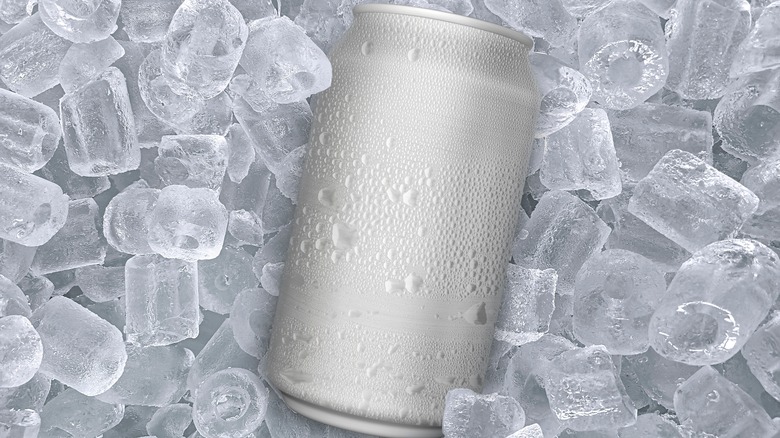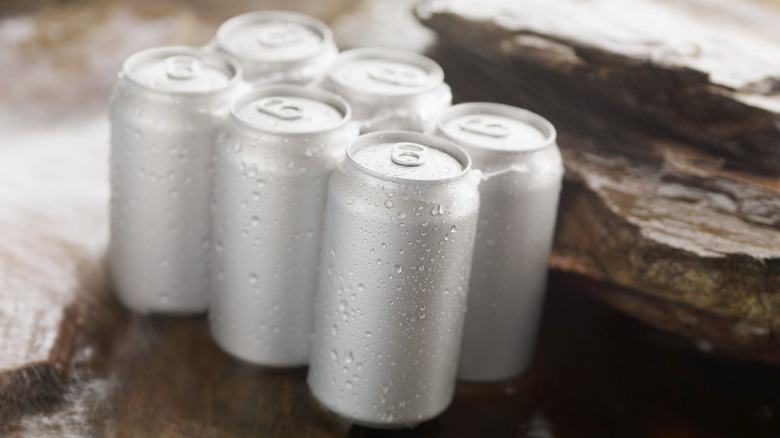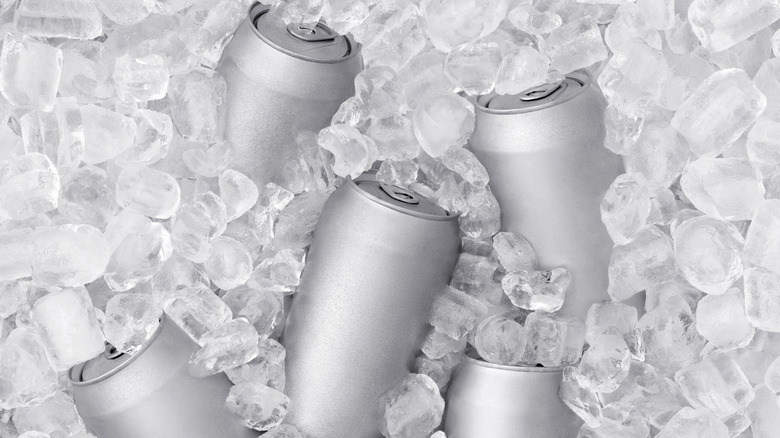Why Canned Water Always Has A Protective Liner On The Inside
No one can deny the numerous benefits of drinking water. Even bottled water, despite its bad environmental rap, has been popular for years in the U.S. However, with the passage of time and increased awareness about environmental degradation, people have now begun to look for more eco-friendly alternatives to bottled water. An easy solution to this problem is canned water made from aluminum. However, as aluminum is a metal, canned water always has a protective liner on the inside, so the metallic taste doesn't interfere with the natural taste of the water contained within.
There are many benefits of canned water. The most important of these is that aluminum is an element that can be easily recycled, often many times over, without losing its basic qualities. Furthermore, the recycling process of aluminum uses much less energy than making new plastic bottles. The water canning process also means the water will last much longer than it would in plastic bottles, where chemicals in plastic would inevitably interfere with bottled water's purity.
The importance of the can's protective liner
Now that the benefits of drinking canned water over bottled water have been established, let's delve into why canned water always has a protective liner on the inside. People may have concerns that when aluminum comes in contact with water, one may encounter a metallic taste resulting from small amounts of metal dissolving into the water. However, this isn't the case.
Canned beverages come with a protective liner made from a food-grade polymer that ensures the water never touches the aluminum casing. Information shared by the Food Packaging Forum highlights that canned food and beverage items are legally mandated to use coatings that hold up to the production process and sterilization. Linings should also ensure that no potentially harmful chemicals will contaminate the food or beverage inside, and will preserve the contents of the can so it remains safe and healthy to consume for several years.
Potential negative points of aluminum cans
Though canned water sounds like a brilliant discovery for the many benefits it promises, there have also been concerns raised about canned water in general. As aluminum can companies look for alternatives to a BPA lining to stick to their promise of being easily recyclable and eco-friendly, they have been experimenting with non-BPA liners of different kinds. However, according to Boxed Water, these new alternatives haven't been tested in the long run for their efficacy in ensuring that the aluminum doesn't come in contact with the water. Some concerns have also been raised that these new experimental linings may break down faster than their plastic alternatives, which could impact the water's taste.
Furthermore, aluminum mining in itself is quite a hazard to the environment. According to Rainforest Rescue, it entails the destruction of agricultural lands and forests, and the process of cooking aluminum after it's been mined results in toxic red mud that can cause further harm to the environment. What's more, energy company Hydro claims emissions from aluminum recycling are miscalculated, resulting in industry "greenwashing."


